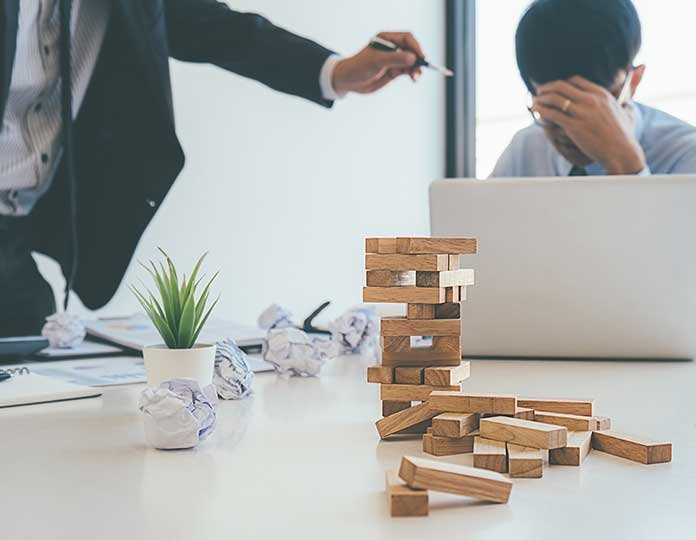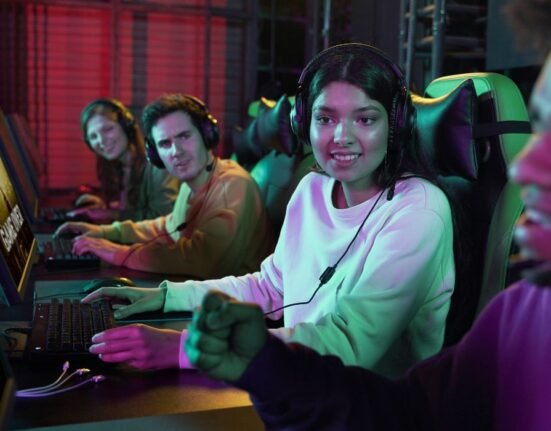All of us have made many mistakes in our life. The mistakes may be a mathematical error, writing a wrong answer for the given question in the paper, or taking a wrong decision in life like choosing the wrong career for oneself. Mistakes are an important part of our lives. Not only humans but even animals and insects learn from their mistakes.
So, what exactly is a mistake? A situation in which you take an inappropriate decision or make an inappropriate action that leads to regret in the future is a mistake. Mistakes can cause a level of pain, loss, or struggle (LCSW, 2020).
We, humans, try to avoid mistakes to achieve perfection. But ironically if we see we repeat the things even more when we want to avoid it. Like while focusing on avoiding mistakes one makes more mistakes than usual. In general, to grow or become successful one must overcome some challenging feelings without making mistakes, even if try hard to avoid them (LCSW, 2020).
How do mistakes benefit learning?
From our childhood, we have been believing that practice makes a man perfect. But what we avoid in this is that practice comes with a lot of mistakes. Without making mistakes and improving them with practice it, perfection can be achieved.
It is seen that errors benefit learning. If errors are generated during learning it helps in gaining negative knowledge which consists of negative facts and other information. This information in turn helps in understanding how negative information is different from positive one. This helps in the accuracy of identifying the appropriate information in future situations (Pan et al., 2020).
In some situations, making errors enhances the learning process rather than not making any error or mistake. In a finding it was observed that pretesting results in better memory for the appropriate answers than reading. This finding opposes the idea that making errors makes learning better. But in a finding, it was also seen the individuals who made errors with high confidence showed more learning after taking feedback on the errors. This is known as hypercorrection (Pan et al., 2020).
In the studies related to productive failure, individuals or learners try to attempt a problem and find solutions without being instructed of the real or correct solution. This concluded that when attempting and failing to solve a problem it may enhance learning. Although, research is to be done in detail in this field (Pan et al., 2020).
Learning from Life and mistakes did: an Indian Approach
As per the ancient Indian traditions, there are many ways of learning. But experiential learning is superior amongst all the others. One more important type of learning is the trial-and-error method. According to a proverb in Kannada, which suggests that a baby brought up on the street survived than the baby brought up in a room. Learning either positive or negative, it influences the behavior of a person and influences one’s perspective of looking towards the world. This behavior is a result of experiential learning (C, 2006).

Embracing Failure:
The consequence of this experience sometimes leads to wrong assumptions and concepts which become a part of the individual’s belief system and values. This decision-making process includes a certain level of judgment and compromise. These decisions are later subjected to errors or mistakes. Mistakes are the basis of trial-and-error learning. And helps an individual respond to failures (C, 2006).
- Accept silence with every situation in life like joys, and challenges, rather than avoiding situations- Mindfulness approach will help one to be in the moment. Which will help nurture self-awareness. This approach will help in focusing thoughts and feelings which in turn will decrease the chances of unexpected errors which occur due to lack of focus (2021).
- Influence inner healing and outer changes with self-compassion- According to research, self-compassion helps in improving our lives and accepting ourselves in different ways. As per psychologist Kristen Neff, self-compassion empowers one to accept oneself. Combination of love, caring force can expand self-compassion and bring changes within an individual (2021).
- Have courageous self-exploration
- Analyze what you are stuck with and what can change – Not all situations are fixable. Sometimes even healing oneself is not easy from a ruptured relationship. One must objectively evaluate the harm that has been caused in this situation. In this situation, one must objectively evaluate the harm that has been done. Analyze the situation and try to make it better (2021).
- Make yourself balanced with prayers or inspiring text
The Role of Mistakes in Human Life
Mistakes are an important part of our lives and can cause pain, loss, or struggle. Humans try to avoid mistakes to achieve perfection, but ironically, they make more mistakes than usual. Errors benefit learning by gaining negative knowledge and enhancing the learning process. Pretesting results in better memory for the appropriate answers than reading, and individuals who made errors with high confidence showed more learning after taking feedback on the errors. This is known as hypercorrection. Experiential learning is superior to other methods of learning, and the trial-and-error method is an important type of learning. It influences the behavior of a person and influences their perspective of the world.
Mistakes are the basis of trial-and-error learning, which helps an individual respond to failures. The strategies for learning from mistakes include accepting silence, mindfulness, self-compassion, courageous self-exploration, and making yourself balanced with prayers or inspiring text. Mindfulness helps one to be in the moment and focus on their thoughts and feelings, while self-compassion helps to improve their lives and accept themselves. Analyzing the situation and trying to make it better is also important.













Leave feedback about this